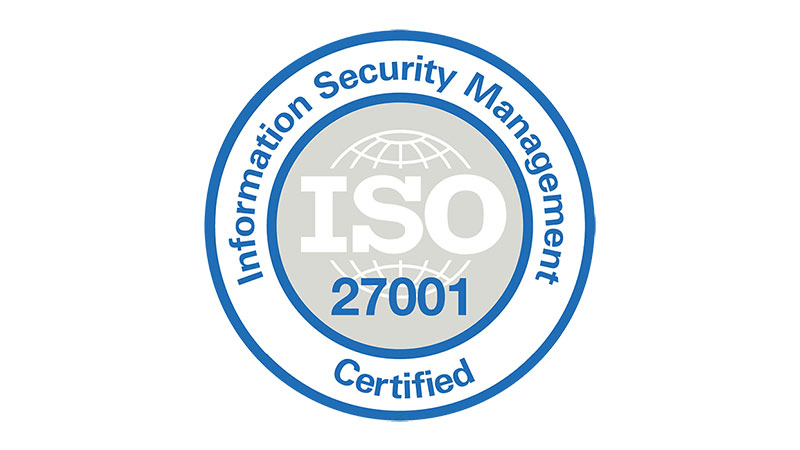ISO 27001:2022 is an international standard that was developed by the International Organization for Standardization (ISO) to set out the specific requirements and guidelines for the development, and implementation, maintenance, as well as regular improvement of an Information Security Management System (ISMS). Any firm that possesses ISO 27001 Certification clearly shows a good appreciation to secure important information and enhance confidence in their clients and the public. Here are 5 key reasons companies should get certified against the ISO 27001:2022 standard:
- Improves Information Security Management
It is possible to say that the establishment of an ISMS in an organization that is aligned with the ISO 27001:2022 standard offers a clear framework to manage information security. This first involves the creation of a formal information security policy, including detailed risk analysis to determine existing and potential risks. Subsequently, the organization chooses along with and deploys a range of security measures sufficient to address the threats they have realized.
Certified organizations are mandated by law to ensure that the implemented controls are periodically assessed and the enhancement is made where necessary. The upshot of this process is that security is managed more proactively as well as structurally with reference to business risks. Although implementing security controls may take time and resources, it is worth doing because ISO 27001:2022 Certification offers external confirmation that your controls are optimal.
Moreover, ISO 27001: 2022 comprehensiveness goes beyond technological limitations. It offers a comprehensive approach to information security by incorporating operational procedures, and physical security, in addition to human resources. This wide range guarantees that all organizational components that may have an impact on information security are taken into account along with efficiently managed information.
- Builds Trust and Credibility
Gaining an ISO 27001:2022 Certification shows potential buyers, suppliers, and other stakeholders that you practice proper information security. It tells everyone that it is a priority to guard big and sensitive information in all your departments. Thus, certification is an accreditation that provides assurance of the quality of services, and people’s confidence in your ability to protect valuable information assets.
This is especially important in cloud service providers, health facilities, financial institutions and business organizations dealing with massive amounts of personal data. As consumer confidence reduces due to data breaches, having ISO 27001:2022 Certification informs external stakeholders that their data is safe in your organization.
In markets where competition is fierce, the certification serves as a potent differentiator. Through proactive risk management, it exhibits an information security commitment that goes beyond simple compliance. Customers and business partners that place a high value on data protection may find this to be especially enticing.
- Enhances Compliance
ISO 27001:2022 does not promise concrete legal and regulatory compliance; Nevertheless, establishing security controls under the framework of an ISMS significantly enhances your compliance situation.
ISO 27001:2022 Information Security Management System is compatible with other information security compliance standards like PCI DSS, HIPAA, GDPR, CCPA, and many more. It is found that focusing on an integrated approach that meets ISO 27001:2022 requirements will help to ensure that different compliance requirements can be met in the best possible manner and in the shortest time possible without the need for the duplication of efforts.
In the situations where there are such discrepancies observed between the ISO 27001:2022 controls and other requirements, the risk assessment will reveal what else is necessary to be implemented. It helps in saving efforts and cost because the compliance approach is not as complex as before.
- Provides Competitive Advantage
While threats remain, data protection emerges as yet another aspect similar to sustainability and social responsibility that consumers do not want to ignore when buying. ISO 27001:2022 Certification is your ticket to branding your organization as one among the best secured in the world.
Gaining an ISO 27001:2022 Certification helps you to outcompete other players in the market as evidence of a company’s seriousness in adopting the best management practices in its processing of information. Informing your prospects and clients that you have acquired those certifications can help you make more sales and retain the existing clientele base.
In knowledge intensive industries where information security is a key competitive factor, as in the financial industry, or health care, certification under the ISO 27001:2022 rules may shift from a competence enhancing tool to a mandatory tool simply to survive. Companies that plan and prepare at this time ensure that they fit properly in their market niche.
- Reduces the incidences and the costs that are associated with such cases.
Of course, ISO 27001:2022 registration and annual audits cost money, however the methodical approach, which is based on the certification standard, will help to save money in the future, avoiding security breaches. Every phase of the implementation of an ISMS is aimed at constantly investing time in identifying risks, reducing the exposure to such risks, and providing adequate resources for protecting the organizational assets that need protection most.
Because good information security controls prevent the great majority of attempts and forestall attacks before they happen, organizations do not suffer expensive data breaches and their secondary effects, which include having to conduct costly investigations, remediate compromised systems, incur legal expenses, endure negative publicity and losing customers.
As per the requirements of the ISO 27001:2022, monitoring is mandatory to ensure that the controls and risk treatments still are effective and sustainable against new threats that are likely to arise. Stringent effort in the initial and constant compliance with the certification specifications is worthwhile in terms of risk exposure.
Conclusion
ISO certification process via INTERCERT means that there is constant enhancement for the achievement of better ways to cost effectively address evolving risk profiles and other organisational shifts. Thus, as threats become more acute, and consumers become more demanding and aware, the globally adopted comprehensive security management standard – ISO 27001:2022 – becomes only more vital in the future. Self-interested organisations will gain several fold performance improvements by engaging in certification now.






